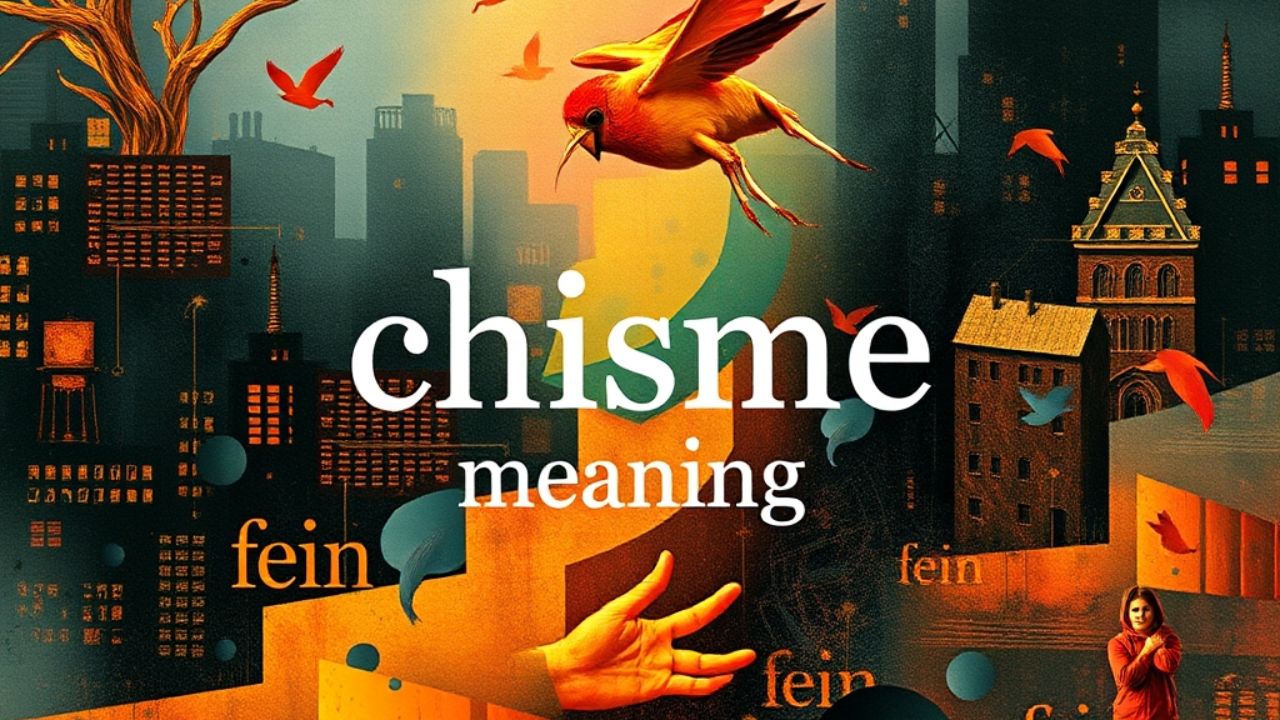If you’ve ever been part of a lively conversation in a Latin household, chances are you’ve heard the word “chisme.” It’s a term that sparks curiosity, laughter, and sometimes even tension. While it directly translates to gossip in English, its meaning carries much more cultural depth than a simple rumor.
In Spanish-speaking communities, chisme is more than idle chatter—it’s a way of connecting, storytelling, and sometimes stirring up drama. From casual family gatherings to neighborhood conversations, it often plays a central role in shaping how people interact and bond.
But where does this word come from, and why does it matter so much in daily life? To truly understand chisme, you need to look at its definition, origin, and cultural significance. Let’s explore how this word weaves itself into everyday language and relationships.
What Does Chisme Mean?
The word chisme in Spanish translates directly to “gossip” in English. But unlike plain English gossip, chisme often refers to juicy details, rumors, or behind-the-scenes talk.
It can be harmless—like sharing funny neighborhood stories—or damaging when spreading false information. Context is everything.
Origin and History of Chisme
Chisme traces back to the Old Spanish term chisme, derived from Latin influences related to “rumors” or “talk.” Over centuries, the word stuck across Spanish-speaking countries.
In Mexico, Puerto Rico, and Central America, chisme is a staple word in everyday life. Though the tone changes by region, the meaning stays rooted in storytelling, secrets, and social talk.
Chisme in Everyday Usage
Picture this: you’re sitting with friends, someone leans in and whispers, “Tengo un chisme.” That phrase instantly means, “I’ve got some gossip.”
It’s often used in playful, lighthearted ways. But in certain cases, chisme can fuel drama, break trust, or even damage reputations. It all depends on intent and delivery.
Chisme in Latin Culture
In Latin culture, chisme is more than just idle talk—it’s part of community life. At family gatherings, in barbershops, or during neighborhood chats, gossip is often how stories spread.
For many, it acts as a bonding ritual. Sharing secrets creates intimacy. But at the same time, negative gossip can fuel divisions and conflict.
Examples of Chisme in Action
- At a family barbecue: “Did you hear about Tía Rosa’s new boyfriend?”
- At work: “Someone said the boss is leaving the company.”
- Among friends: “Guess what I found out about last night’s party…”
These examples show how chisme weaves into everyday conversations, from harmless fun to sensitive revelations.
Chisme and Relationships
Chisme can strengthen friendships because it makes people feel included. Being trusted with a secret feels special.
However, it can also create tension. Rumors can lead to mistrust, misunderstandings, and even broken relationships. Like fire, gossip warms when controlled—but burns when it spreads out of hand.
Chisme vs. Chismosa/Chismis/Chismes
- What is chisma in slang?
Some people say chisma casually, but the correct word is chisme. - Is it chisme or chismosa?
Chisme is the gossip itself. Chismosa refers to a gossiper, the person who spreads it. - What is chismis or chismes?
In the Philippines, “chismis” is widely used, while “chismes” is a plural form in Spanish. Different words, same root idea—gossip.
The Role of Chisme in Modern Society
Today, gossip doesn’t just happen over coffee—it spreads through social media at lightning speed. Online chisme is often magnified by memes, trending hashtags, and viral posts.
From celebrity scandals to neighborhood Facebook groups, gossip continues to shape how people connect, judge, and communicate in a digital-first world.
Conclusion
In the end, chisme is more than just gossip—it’s a cultural phenomenon that reflects how people share stories, build connections, and sometimes create conflict. Its roots go deep in Latin traditions, showing us that conversation is never just about words, but about relationships and community ties.
Whether it’s whispered at a family gathering or trending on social media, chisme continues to shape the way people interact. Understanding its meaning and origin gives you more than vocabulary—it offers insight into human nature, cultural identity, and the timeless power of storytelling.
FAQs
What is chisma in slang?
It’s a casual mispronunciation of chisme, meaning gossip.
Is it chisme or chismosa?
Chisme means gossip, while chismosa means the person spreading it.
What is an example of chisme?
Hearing rumors about a coworker’s promotion before it’s official is a common example.
What is chisme in Latin culture?
It’s both a social glue and a source of drama, used in families, neighborhoods, and friendships.
How does “chisme” affect relationships?
It can build intimacy if positive, but harm trust when negative or false.
Is it chismis or chismes?
Chismis is common in Filipino slang; chismes is the plural in Spanish. Both mean gossip.

Welcome to Bloomnis.com! I am the admin, here to bring you the best jokes and laughter. My goal is to make your day brighter with funny content. Enjoy jokes, puns, and humor anytime. Keep smiling and have fun with us. Laughter is the best medicine!
















